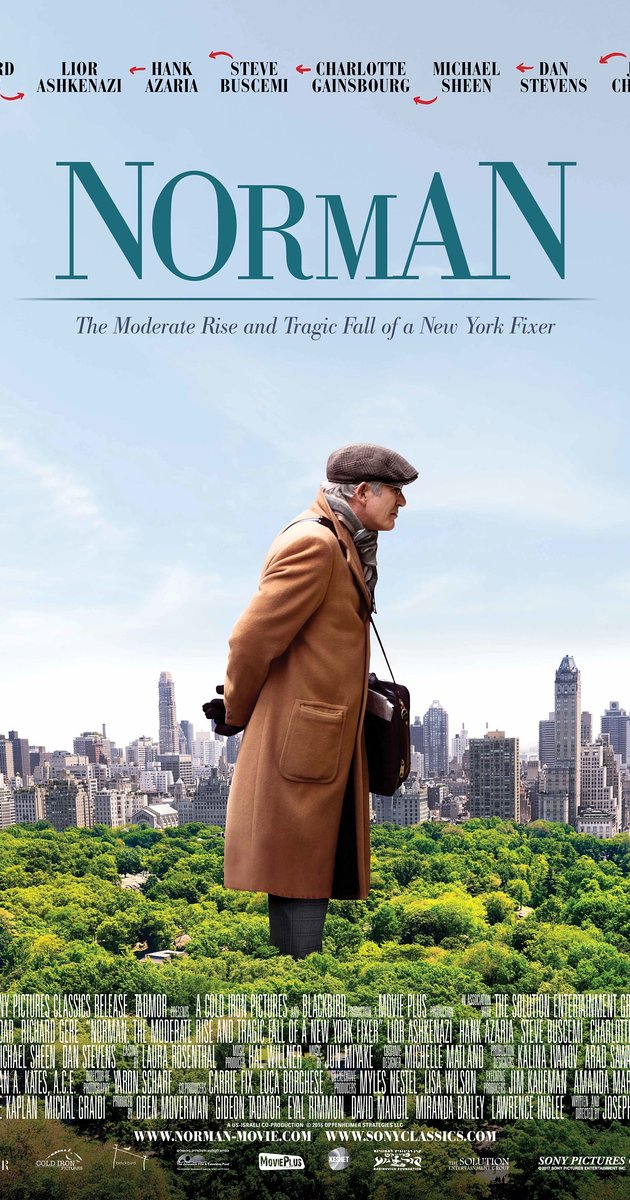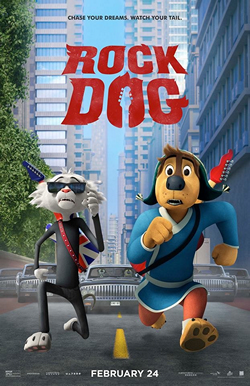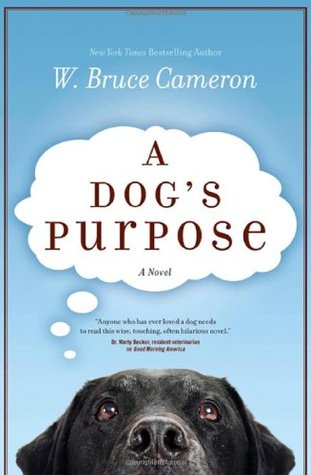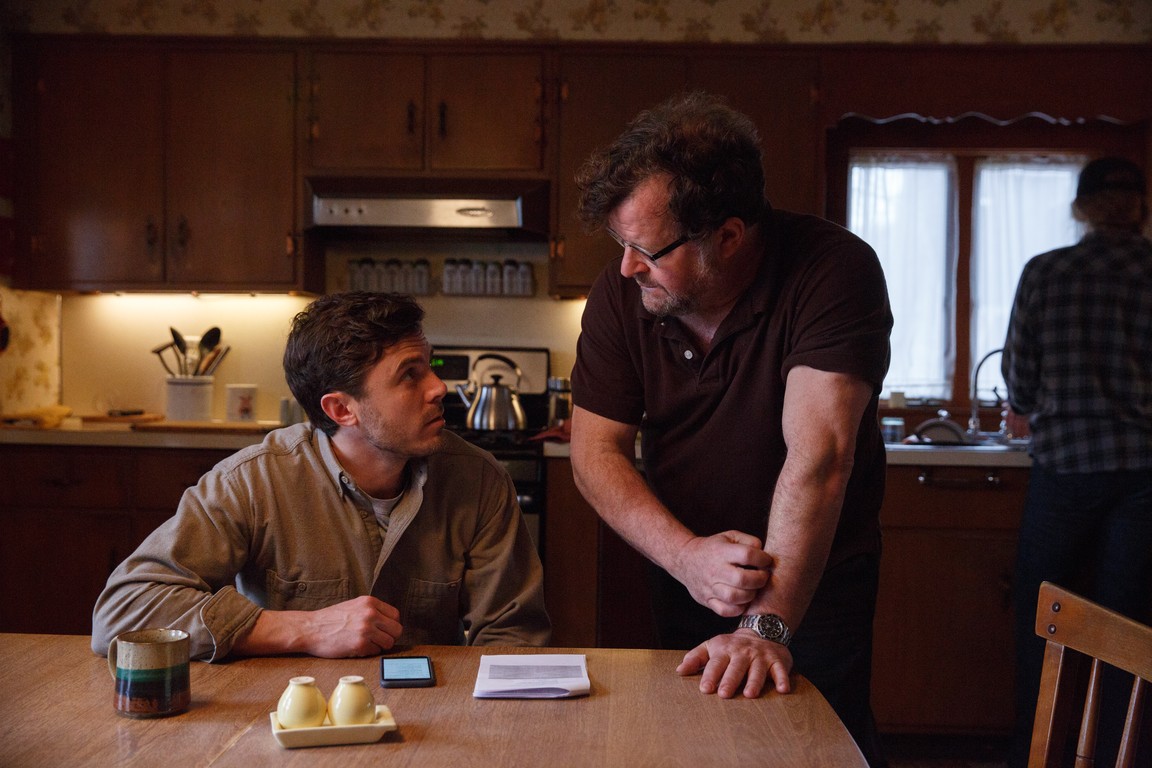Interview: Director Joseph Cedar on “Norman”
Posted on April 20, 2017 at 8:00 am

Israeli-American Joseph Cedar wrote and directed one of my favorite movies, the Oscar-nominated Beaufort, and I am a fan of his film “Footnote” as well. Both are in Hebrew. So it was a great pleasure to talk to him about his first English language film, “Norman,” starring Richard Gere and Steve Buscemi. Gere plays the title character, a schmoozer and small-time wheeler-dealer who gets caught up in international politics when he befriends an Israeli government official who ends up as Prime Minister.
Who casts Richard Gere as a shlub?
I think it’s the ultimate challenge. I like it when actors act. It’s gratifying to see an actor do something that is very far from who he is or how we perceive him in other films, his persona. It’s also gratifying to see an actor do something that is genuinely difficult that other people can’t do. And I found that in what Richard was doing, it’s like watching a circus act. It’s was remarkable for me in every scene to see him just be someone he’s not.
The hair really helps create his character, very different from the more glamorous image we have.
We did something with this whole physical appearance which is subtle but changes the way he looks to an audience. More importantly, it changes the way he looks to himself. He’d come out of makeup and wardrobe and look in the mirror and he wasn’t seeing the Richard Gere he is used to seeing on a movie set. That is helpful to create a body language that was different and specific for Norman. And this made it possible for him to do things that he doesn’t normally do in movies. So we did play around a little bit with his physicality.
It was almost as surprising to see Steve Buscemi as a rabbi.
That’s less of a stretch in my mind, I think Steve Buscemi would make a great Upper West Side rabbi. He’s a New Yorker and that is in itself most of the research but I did introduce him to a rabbi and I think it was more for Steve to feel comfortable not trying to be something that’s exotic. I introduced him to someone who gave him license to basically be himself. The character he plays was something we discussed like I would discuss the character with any actor but it was more about the circumstance that he is in, the financial situation his synagogue is in and just how communities are organized at least in New York. Those were the things that we spoke about. I thought it was interesting for him and for me to be a big part of where Norman sits in the grand scheme and the big deal that he is putting together.
It seems to me that one thing that makes it possible for Norman to succeed as much as he does is that he has no social shame. Most of us would cringe at making ourselves vulnerable to so much rejection.
What’s odd about what you just said is that in a different context someone who is shameless is considered a negative thing but I think it’s actually a really positive quality not to have pride or to be willing to take humiliation. It’s something that most of us aren’t willing to do and many times we rely on other people not having those inhibitions, those blocks that we put on ourselves.
I have to really not look at Norman from the outside but be in Norman’s shoes. Norman isn’t aware that he’s doing something that is humiliating. He sees his goals and obviously he is doing things that most people won’t do to achieve that goal but he has his way of denying the insult when it happens. He thanks most people after they push him away. It’s part of what allows him to do what he does and it’s his survival tool, not really being aware of how other people see him.
I think the point for me in just figuring him out is just realizing that it’s not really humiliating, wanting something and being willing to do everything including doing every once in a while a conniving trick if it’s serving something that he thinks is good, then I respect that. The world needs people who are willing to do what Norman does.
Could Norman tell you exactly what he wants? A specific policy goal or project or just being a part of things?
Is it self-serving or is it a mixture of wanting some influence or having a position or having access to something that is good for Norman — but isn’t there also always something else or there might be something else that can be a result of that that is good?
I think it generally starts out that way but then it can get lost. Look at your Prime Minister character, Eshel. He begins as somebody who says, “No I couldn’t let you buy me these very expensive shoes,” and he ends up as somebody who has to do a lot of compromising.

What happens in that scene from my point of view is morally challenging. If I put myself in both these characters’ places, I don’t think I would accept a $1200 gift from someone I just met and I probably wouldn’t give a gift that is so expensive to someone I just met. So there’s something that feels wrong about the whole encounter and what makes it happen is that both sides convinced themselves that it’s okay. Eshel’s character convinces himself that by accepting the gift he is actually already returning the favor and that he is in a way giving Norman some sense of being part of an important mission or something bigger than himself by offering him a representative in this case of Israeli government, by offering him something that would make them feel more comfortable or feel better about himself. Norman is seeing this as an investment that will help him forward other initiatives that he has been trying to do and has not been successful. It’s a risky investment because Eshel may never call back or may never deliver or may never turn into someone who actually has power, but it’s worth it to him on instinct. He feels that this can work because he really needs to take every opportunity he can to get in. To have a foot in the door.
But that brings us to his downfall. Because he has that strategy or that impulse to take every possible advantage he gets into a conversation on a train that turns out to be kind of disastrous to him because it’s too revealing.
I agree with you in calling it an impulse, it’s not really something he can control, it’s what he does, it’s who he is, it’s an expression of his deepest core. He can’t hold back.
Norman does what he does on instinct. He is wired this way and it’s a survival thing more than a planned-out business scheme. It’s just how he survives. It’s his function in the world.
You live in both the US and Israel. We seem to be in a uniquely tumultuous moment. What comfort do you think people can take from watching this movie?
Hopefully there’s a lot of comfort to take from watching this movie but none of it should affect their mood about what’s happening in America. If anything the times we’re living are times that call for action. We shouldn’t take things for granted and we should try to influence our surrounding.







